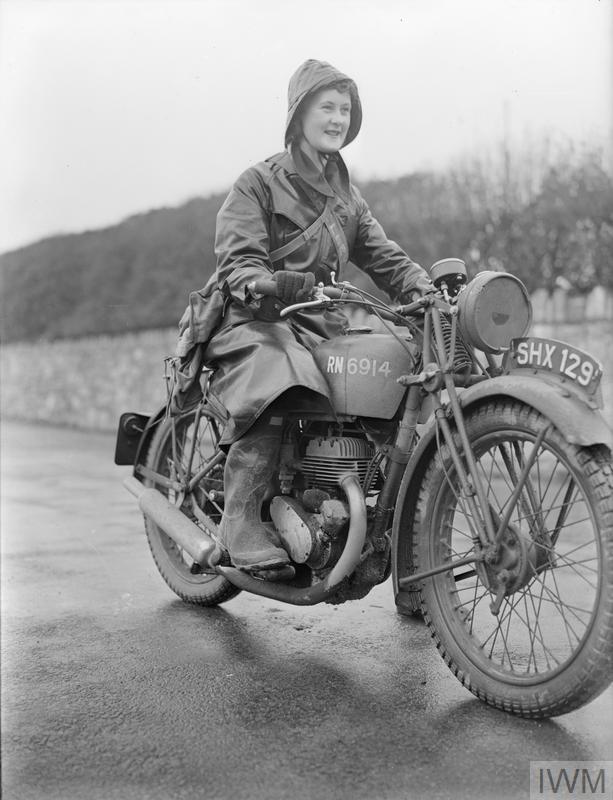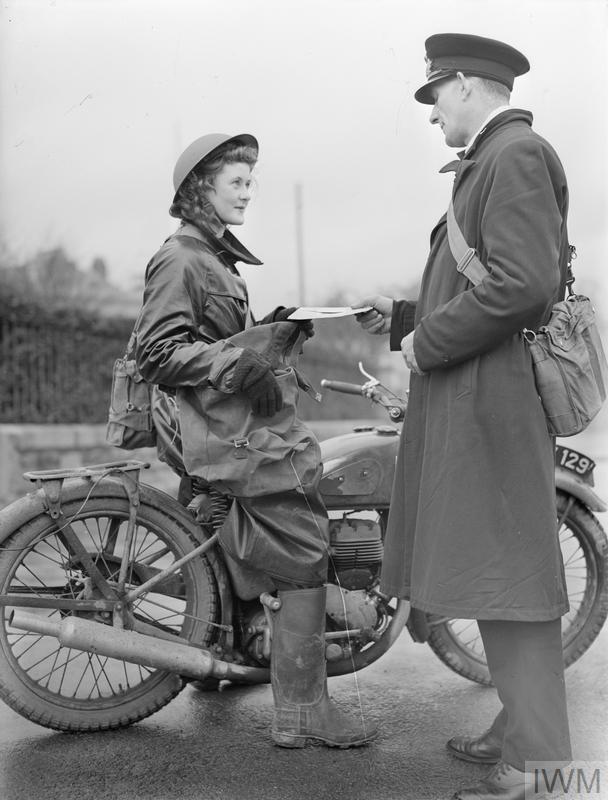In researching my upcoming release, The Light Over London, I was continually amazed at the many—often unsung—ways women contributed to the war effort in Britain during World War II. The Lightseekers is an ongoing series of articles that highlights some of their work and the ways they brought light to Britain in one of its darkest times.
If you’re looking for bravery and glamor in equal parts, look no further than the motorcycle dispatch riders of the Women’s Royal Navy Service (WRNS), popularly known as the Wrens. This group of women played a vital role during World War II, providing reliable communication for the Royal Navy and admiralty in a time when technology could too easily fail.
The history of female dispatch riders starts far earlier than World War II. The first group of Wrens who rode motorcycles for Britain was formed in 1917 during the World War I. They were disbanded in 1919, but the service was revived in 1939 when Britain again found itself at war. All able-bodied seamen were needed in the Royal Navy, and the women’s auxiliary adopted the famous slogan “Join the Wrens and Free a Man for the Fleet.”
Seen a posh and glamorous with their flattering uniforms and upper-crust recruits, many girls who wanted to join up clambered to become a Wren. But when it came to becoming a dispatch riders, only those women with prior motorcycle riding experience were initially selected. (This was in part because riders had to be able to maintain their bikes as well as ride.) That meant that before World War II, which so many of us see as a turning point in the activities that were acceptable for women, women were riding bikes—including some well-known competition riders from local race circuits.
The primary role of a dispatch rider was to ferry orders and messages between the Royal Navy and admiralty’s offices and bases. They worked in sometimes harrowing conditions, during Blitz conditions and in all weather.
One story of a Wren’s bravery is that of Wren McGregor. She set out to deliver a message to her commander in Plymouth, which was under a bombing raid. En route, her motorcycle was hit by a bomb. Incredibly, she was uninjured and left the destroyed motorcycle by the side of the road, running a half mile to her headquarters to deliver the message with bombs falling around her. With her task complete, she volunteered to go back to work. Unsurprisingly, McGregor was awarded a British Empire medal for bravery.
The accomplishments and importance of the dispatch riders was so great that they became the subject of parliamentary debate on July 6, 1943. Lord Brabazon of Tara criticized the Royal Air Force (RAF) for not making use of women as dispatch riders. “We, who live in London, see many members of the W.R.N.S. going about on motor bicycles in all sorts of weather,” he said. “We see them on the streets of London every day. Figuratively, whenever I see one I take my hat off to her—but only figuratively.
Courtesy of the Imperial War Museum
More than 100 Wrens who were motorcycle dispatch riders lost their lives riding through the Battle of Britain and other conflicts. The subjects of photo spreads and press interest just as they were the recipients of medals for bravery, they became famous across the world as an example of the work women did during the war.
Read every story of the The Lightseekers in the series archive. You can also learn more about their stories by following the hashtag #TheLightseekers on Instagram, Facebook, Twitter, and Pinterest.




